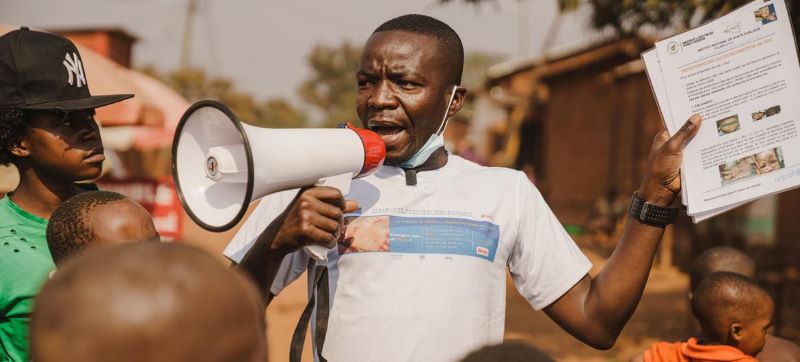 Mpox
Mpox
Mpox: WHO seeks $135 million to defeat current outbreak
The current mpox outbreak “can be controlled and can be stopped”, the head of the World Health Organization (WHO) emphasized on Friday, announcing an action plan that calls for $135 million over the next six months.
“Responding to this complex outbreak requires a comprehensive and coordinated international response,” WHO Director-General Tedros Adhanom Ghebreyesus told Member States, as cases spread beyond Africa to Europe and Asia.
The briefing was held just over a week after he declared that mpox was a public health emergency of international concern.
New mpox virus strain
Tedros said the global outbreak first emerged in 2022, with more than 100,000 confirmed cases reported since then. While the virus continues to circulate at low levels, Africa has seen an unprecedented increase and expansion.
Transmission is mainly centred in the Democratic Republic of the Congo (DRC), where there have been more than 16,000 suspected cases, including 575 deaths, this year alone.
The surge is being driven by two separate outbreaks of two strains of the mpox virus, or clades, and in different parts of the country.
Rapid spread
The rapid spread of a new offshoot, clade 1b, was the main reason behind his decision to declare mpox a global public health emergency on 14 August.
“In the past month, cases of clade 1b have been reported in four countries neighbouring DRC, which had not reported mpox before: Burundi, Kenya, Rwanda and Uganda. This week, cases have also been reported in Thailand and Sweden,” he said.
We can stop mpox
In response, WHO and partners have developed a plan to stop outbreaks of human-to-human transmission of mpox through coordinated efforts at the global, regional, and national levels.
“Let me be clear: this new mpox outbreak can be controlled and can be stopped,” Tedros insisted.
“Doing so requires concerted action between international agencies and national and local partners, civil society, researchers and manufacturers, and you, our Member States.”
He stressed that response must be anchored in equity, global solidarity, community empowerment, human rights, and coordination across sectors.
Strategic response plan
The Global Mpox Strategic Preparedness and Response Plan (SRSP) focuses on implementing comprehensive surveillance and response strategies, as well as advancing research and equitable access to medical countermeasures.
“Our initial estimates are that the SPRP requires approximately $135 million over the next six months for the acute phase of the outbreak. That amount will likely increase as we update the plan in light of growing needs,” Tedros said.
He added that a dedicated WHO funding appeal will be released early next week.
Leadership, preparedness and coordination
The SPRP also calls for minimizing zoonotic transmission and empowering communities to actively participate in outbreak prevention and control.
At the global-level, emphasis is on strategic leadership, timely evidence-based guidance, and access to medical countermeasures for the most at-risk groups in affected countries.
In this regard, WHO is working with a range of international, regional, national and local partners and networks to enhance coordination across the key areas of preparedness, readiness and response.
WHO regional offices have also established Incident Management Support Teams (IMSTs) to lead preparedness and response activities, while staffing is being scaled up in affected countries.
Preventing transmission, saving lives
Additionally, the Regional Office for Africa, in collaboration with the African Centres for Disease Control (CDC), will jointly spearhead the coordination of mpox response efforts, given that needs on the continents are greatest.
Meanwhile, health authorities at the national and sub-national level will adapt strategies to current epidemiological trends.
Tedros noted that WHO has so far released roughly $1.5 million from a contingency fund for emergencies, with more allocations expected in the coming days, “until funding from donors for the response comes in.”
He said the agency “will coordinate the global response, working closely with each of the affected countries, to prevent transmission, treat those infected, and save lives.”
Support Our Journalism
We cannot do without you.. your contribution supports unbiased journalism
IBNS is not driven by any ism- not wokeism, not racism, not skewed secularism, not hyper right-wing or left liberal ideals, nor by any hardline religious beliefs or hyper nationalism. We want to serve you good old objective news, as they are. We do not judge or preach. We let people decide for themselves. We only try to present factual and well-sourced news.







